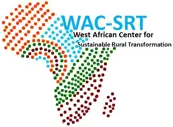These programs are advertised by the respective universities between March and May and students from all over West Africa apply. After an initial admission process run by the universities, 18 scholarship holders, matching the quality requirements of the funding agency, are selected by a committee with representatives from the universities, ZEF and the DAAD. Currently the scholarships of thirteen national and five international candidates can be funded annually, and three batches have been recruited since 2018. Successful applicants receive two-year-scholarships for their master studies and additional funding to carry out field research. From 2021, the annual number of master-level scholarship-holders will be reduced to 12 and one PhD-scholarship per partner institutions will be funded.
Each year, the students of the three master programs meet for a transdisciplinary special school, which gives them the opportunity to discuss varied aspects of sustainable rural transformation with academics from diverse disciplines and countries, as well as with development practitioners from government and civil society organizations. Besides lectures and discussions, the four-week program provides room for cultural activities and fosters close interactions between master students from Ghana, Niger and other West African countries. The exchange helps them to improve their language skills and facilitates future regional professional and academic cooperation.
International and interdisciplinary PhD Course
In 2019 WAC-SRT has drafted a curriculum for a common PhD-course that provides add-on training for PhD-student from all three partner-faculties. The main objective is to educate professionals who are able to think critically and innovatively, to plan and execute solutions beyond disciplinary boundaries, integrating different aspects and perspectives into their academic inquiries and professional practices. Furthermore, the interaction between Francophone and Anglophone students and lecturers will further enhance academic networking and regional cooperation in West Africa. From 2021 onwards 3 PhD-scholarships will be funded annually.



